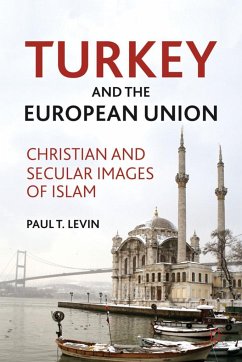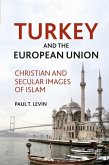"What do you get when a superb scholar adopts a constructivist view of history, develops a sophisticated conception ofcollectivity identity, andtakes on Europe's long-running encounter with Islam?A book I actually wanted to read from beginning to end." - Nicholas Onuf, Professor Emeritus, Florida International University, and Professor Associado, Pontifícia Universidade Católica do Rio de Janeiro
"This fascinating volume exposes the long and troubled history of Christian, and later European, images of Muslims. Taking a narrative approach, Paul T. Levin explores the historical, social-psychological and conceptual bases for Europe's uneasy relations with Turkey and how these historical legacies play into Turkey's potential EU accession. This excellent book grasps wholeheartedly the changing nature of Europe's relations with Turkey and presents a more holistic view than most other books of this kind. A true joy to read!" - Catarina Kinnvall, Professor of Political Science, Lund University and co-author of The Political Psychology of Globalization: Muslims in the West
"Finally a book-length study of how Europe has seen Turkey and its predecessors. Throws a lot of not always flattering light on Europeans, and adds to our understanding of today's quandary." - Iver B. Neumann, Oslo, Norway, author of Uses of the Other: "The East" in European Identity Formation
"This fascinating volume exposes the long and troubled history of Christian, and later European, images of Muslims. Taking a narrative approach, Paul T. Levin explores the historical, social-psychological and conceptual bases for Europe's uneasy relations with Turkey and how these historical legacies play into Turkey's potential EU accession. This excellent book grasps wholeheartedly the changing nature of Europe's relations with Turkey and presents a more holistic view than most other books of this kind. A true joy to read!" - Catarina Kinnvall, Professor of Political Science, Lund University and co-author of The Political Psychology of Globalization: Muslims in the West
"Finally a book-length study of how Europe has seen Turkey and its predecessors. Throws a lot of not always flattering light on Europeans, and adds to our understanding of today's quandary." - Iver B. Neumann, Oslo, Norway, author of Uses of the Other: "The East" in European Identity Formation








